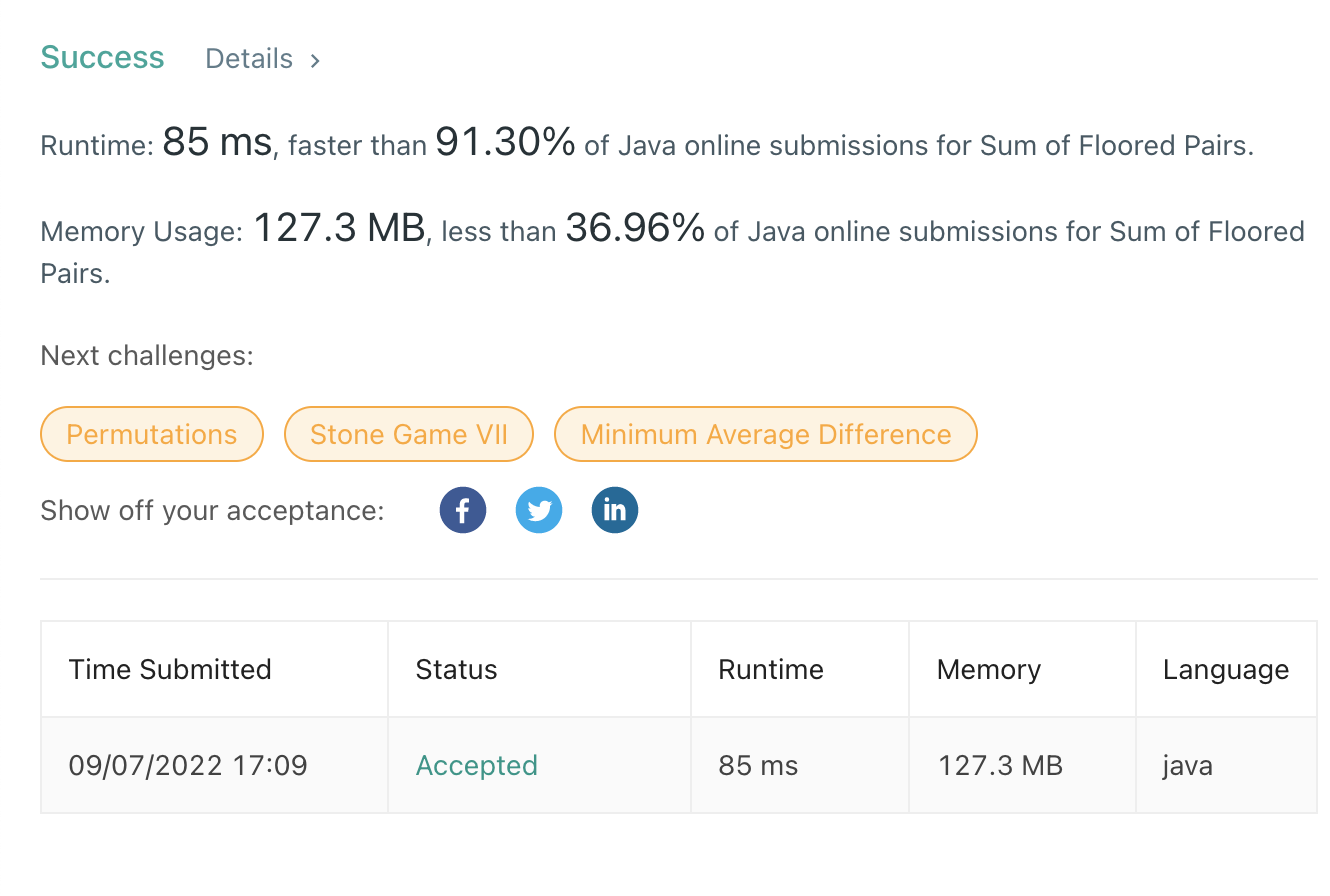Leetcode 1862 向下取整数对和 ( Sum of Floored Pairs *Hard* ) 题解分析
题目介绍
Given an integer array nums, return the sum of floor(nums[i] / nums[j]) for all pairs of indices 0 <= i, j < nums.length in the array. Since the answer may be too large, return it modulo 10^9 + 7.
The floor() function returns the integer part of the division.
对应中文
给你一个整数数组 nums ,请你返回所有下标对 0 <= i, j < nums.length 的 floor(nums[i] / nums[j]) 结果之和。由于答案可能会很大,请你返回答案对10^9 + 7 取余 的结果。
函数 floor() 返回输入数字的整数部分。
示例
Example 1:
Input: nums = [2,5,9]
Output: 10
Explanation:
floor(2 / 5) = floor(2 / 9) = floor(5 / 9) = 0
floor(2 / 2) = floor(5 / 5) = floor(9 / 9) = 1
floor(5 / 2) = 2
floor(9 / 2) = 4
floor(9 / 5) = 1
We calculate the floor of the division for every pair of indices in the array then sum them up.
Example 2:
Input: nums = [7,7,7,7,7,7,7]
Output: 49
Constraints:
1 <= nums.length <= 10^51 <= nums[i] <= 10^5
简析
这题不愧是 hard,要不是看了讨论区的一个大神的解答感觉从头做得想好久,
主要是两点,对于任何一个在里面的数,随便举个例子是 k,最简单的就是循环所有数对 k 除一下,
这样效率会很低,那么对于 k 有什么规律呢,就是对于所有小于 k 的数,往下取整都是 0,所以不用考虑,
对于所有大于 k 的数我们可以分成一个个的区间,[k,2k-1),[2k,3k-1),[3k,4k-1)……对于这些区间的
除了 k 往下取整,每个区间内的都是一样的,所以可以简化为对于任意一个 k,我只要知道与k 相同的有多少个,然后比 k 大的各个区间各有多少个数就可以了
代码
1 | static final int MAXE5 = 100_000; |
贴出来大神的解析,解析
结果
